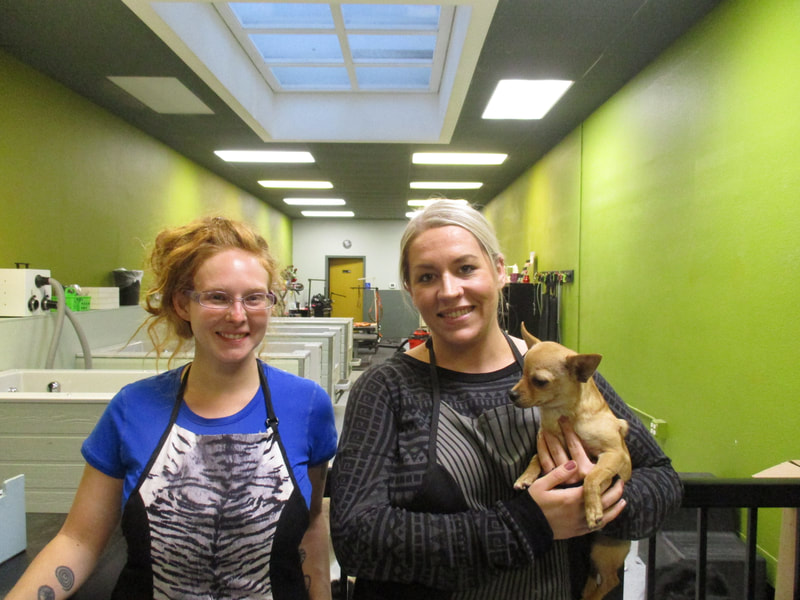 Mona K-Hinds
Mona K-Hinds Just ask some community leaders whose academic disinterest once nearly crushed them: a board member from Central School District, a Polk County Commissioner, a Portland-based expert on learning outcomes who earned his doctorate from the University of California (UC), Berkeley -- but only after being saved from high-school boredom by getting involved in building and construction.
It comes as no surprise to any in this trio that students who have a hard time with traditional school are finding success at a program in Independence that provides a different route for getting an education.
Located in a wing of the Henry Hill Education Building on 5th Street, it’s a hub of the Community Services Consortium (CSC), and twice a year it has a graduation ceremony for youth and young adults who otherwise might have fallen through the system’s cracks. (See sidebar for more information about CSC.)
The Polk County CSC has multiple “partners” -- Central High School, the City of Independence, Oregon State University and Western Oregon University (WOU), among others -- and it’s helmed by Mona K-Hinds, who has been “in and out of education,” as she puts it, for all of her adult life.
From helping such entrants to clinch their general-equivalency diploma (GED) to assisting them in finding a professional course they’d like to follow, it’s work that is fulfilling but takes a lot of energy, said K-Hinds, adding that she plans to retire within the next couple of years.
There are currently about 100 youth or young adults in the program, ranging from the teen who wasn’t fulfilled in public education to one who suffers from anxiety by being in a traditional classroom. K-Hinds sees herself as a coach – she’s not a teacher, she said.
 Josh Hjelmberg
Josh Hjelmberg Acquiring skills by using the maker space and the lab can prepare participants for a workforce that increasingly asks for familiarity with technology that very first day on the job, K-Hinds explained.
Covid put a damper on high activity in that maker space, which ordinarily buzzes like a hive, “but we are slowly reopening the space and creating smaller cohorts of people to do so safely,” said Josh Hjelmberg, the technology teacher at CSC who has managed the STREAM Lab maker space since the fall of 2018.
Across the street, CSC has created a youth and community garden, where urban farming is done in raised beds. The harvest usually goes directly to one of two places: For donation, such as to the Ella Curran Food Bank, or for cooking classes in culinary arts.
From learning a trade, such as masonry, to mastering restaurant cooking, the program has helped many students with challenges that can make it difficult to fit into a regular school setting; It has been described as a "life raft" by those who have seen it change lives.
“We have a great partnership with CSC in supporting students that may struggle in a traditional public school,” said Jennifer Kubista, superintendent of Central School District 13J. “Our partnership has allowed students to not only earn their GED, but also continued to give students a pathway to earn their high school diploma based on our current model,” she said, adding: “We look forward to the continued partnership for the success of students.”
K-Hinds, who was named “outstanding senior” during her college days at WOU under the change-agent President Richard Meyers, became a “WOU ambassador” as an undergraduate, thanks in part to Meyers’ mentorship. Eventually, he named her director of student development for WOU.
Along the way to Polk County's CSC, K-Hinds was a senior director within Mary Kay Cosmetics, becoming such a successful saleswoman she earned a candy-apple red car. However, the lure of education kept recurring. After wearing several other job-related hats, including becoming the first woman president of the Monmouth-Independence Chamber of Commerce, she helped launch CSC in Polk County, a public non-profit anti-poverty agency that’s part of a nationwide network aimed to connect residents with resources.
Polk County Commissioner Lyle Mordhorst said he considers K-Hinds remarkable in her efforts with at-risk youth, and he can relate to them. “Books and studying just weren't my thing," Mordhorst recalled. "Sitting at a desk -- I struggled with that," he added. The opportunity for such training is critical, he said.
What made Mordhorst’s own high-school experience successful was his chance to learn a trade, specifically how to butcher and cut meat. Upon graduation, a grocery store hired him. That first job out of school can be hard to get, and training makes it so much easier, he said. "What's the first question you're asked? What kind of experience have you had?" Mordhorst observed.
Mordhorst, whose adult career primarily was spent as a manager at Les Schwab, was promoted to that position within eight years after joining the company. He attributes the swift rise to his work ethic, willingness to learn and self-motivating behavior, as well as the knowledge he acquired about tires, wheels and automotive know-how, he said.
 Josh Hjelmberg with STREAM lab student
Josh Hjelmberg with STREAM lab student As a teacher, he believed in offering experiential training, from learning how to run backhoes to bulldozers. However, “cost can be a substantial barrier,” he pointed out.
But dollars aren’t the only stumbling block. As Oregon embarks on ramping up career and technical education (CTE), it will be a “heavy lift,” according to the new Oregon CTE policy guide, published by the Oregon Department of Education (ODE) last summer. “The career exploration system across Oregon’s K-!2 landscape may be best described as a hodgepodge of programs, policies and practices that lack alignment across levels and often fail in preparing students from the critical transition from one schooling level to the next,” the guide states.
Increased engagement in school by participants in CTE is one benefit. However, there are other significant advantages, said Steve Klein, who is part of a team consulting with the ODE to strengthen CTE programs of study development and promote more inclusive CTE across the state.
By helping nail down what activities seem a good fit, the likelihood of "youth milling around” in the labor force without an idea of what they want to do as a career declines -- and the ability to make good professional choices improves, he said.
Klein, whose graduate work was done at UC Berkeley, said that he found high school fairly boring a lot of the time, just as many current high school students do. Thirty years later, he’s still doing the kind of woodworking that kept him so engaged during those days.
“We have to be careful about our messaging," said Klein, director of learning design and development for Portland-based Education Northwest, which helps schools and educational agencies improve learning outcomes through applied research and customized technical assistance.
CTE has been a frequent topic at Central District School Board meetings, sometimes mentioned by Shinkle and discussed often by Kubista as well.
CTE is "for everyone," not just youth at risk for dropping out of high school, Klein stressed. It gives students the opportunity for "authentic experiences," to explore different tasks and different jobs, he said.
"We watch TV shows and think we know what work in a career entails," he explained. One result: college graduates who've sunk years and money preparing for a work life -- only to find that they don’t actually like the job for which they prepared. "We have to move away from this academic 'lock step' on the path to college," he said.
 Nichole Rose
Nichole Rose  CSC raised garden beds
CSC raised garden beds They can visit any time they like, just to sit when they need the space to do so or to manage feelings, she explained. "Weeds are really good for that," she said. "You can just pull them when angry and it really helps,” said Rose,
"I view gardening (for the youth) as a platform for life," said Rose, who has raised five children with the youngest two now in their teens. Everyone, including adolescents, can learn from tending a garden, she said – one lesson quite literally is that “you reap what you sow.”
 CSC sidewalk project at Berean Baptist Church
CSC sidewalk project at Berean Baptist Church It is a struggle, at times, to keep all the “moving parts” in alliance, K-Hinds confessed. However, she’s happy to have such a robust program, especially now that she plans to leave it, she said. “When I got here, there was just a pile of dusty chairs.”
SIDEBAR: Information on the Community Services Consortium
The Community Services Consortium (CSC) in Polk County is only one of many programs and locations of CSC operating across Linn, Benton, Lincoln and Polk counties. Headquarters are located in downtown Albany in the Two Rivers Market on Broadalbin Street.
The program in Polk County – often referred to simply as “CSC” – is part of a much larger CSC, a community action agency serving 75,000 community members annually providing services for housing, employment, education, food, energy services and other public needs across the region.

















































































 RSS Feed
RSS Feed